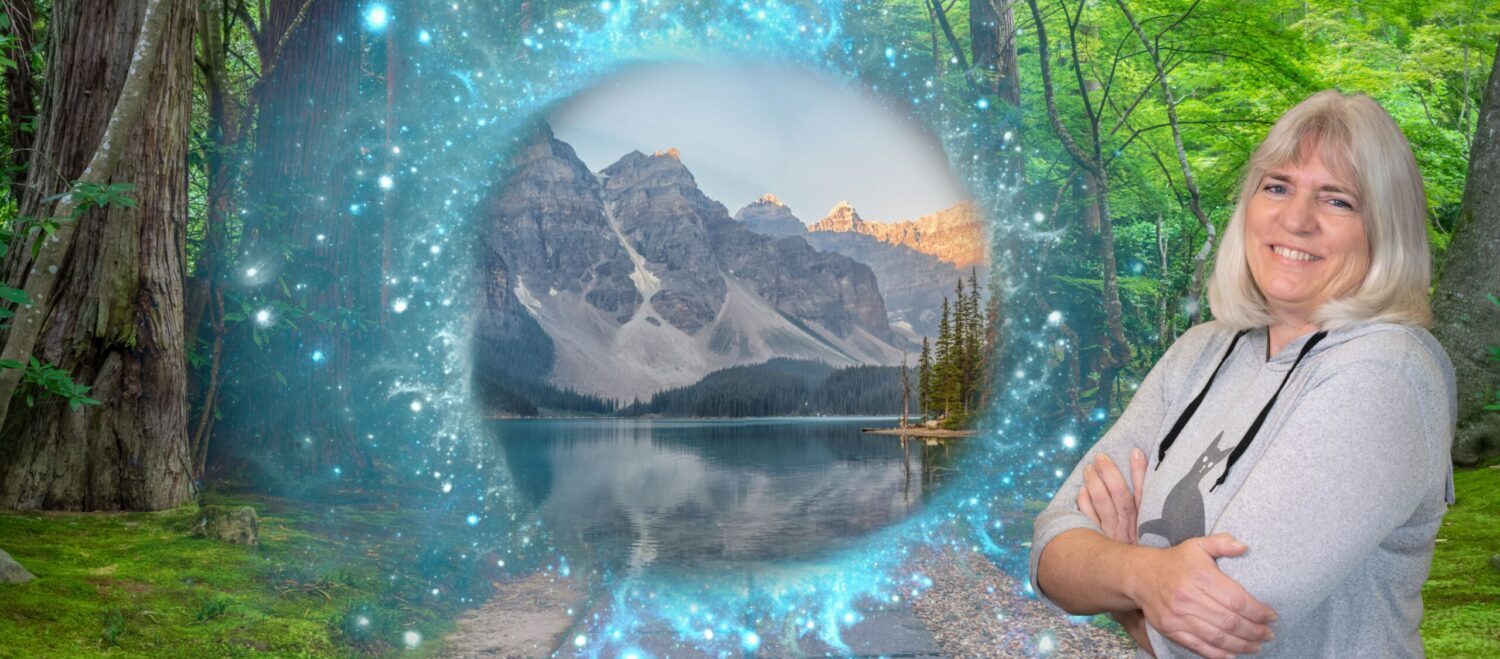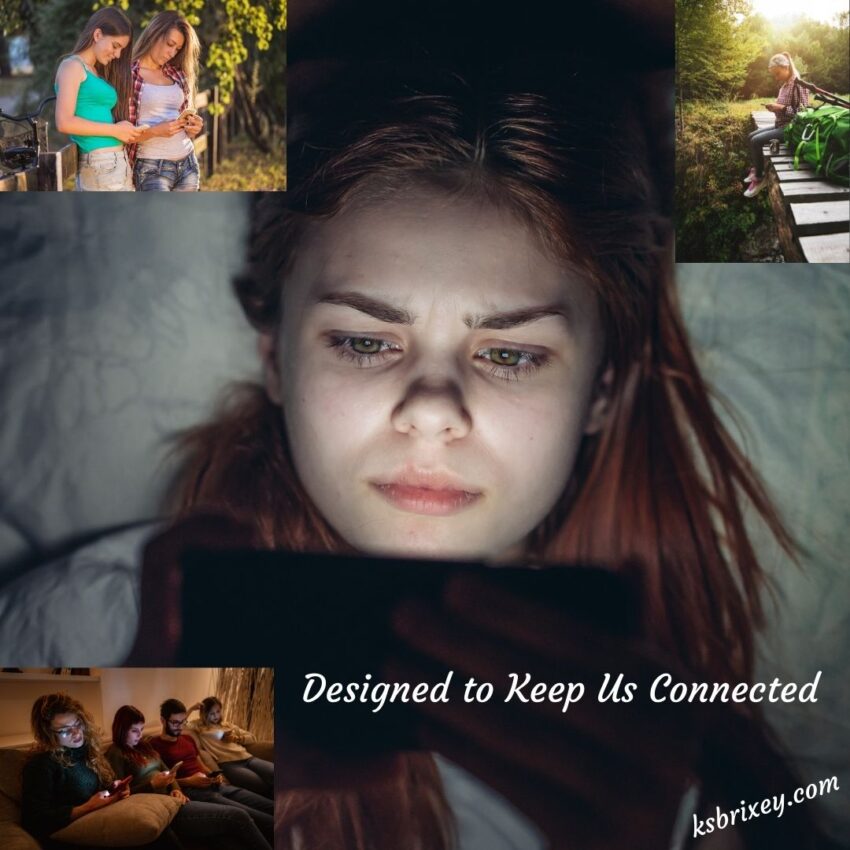”It’s 10:45 a.m. — I slept in til 10:00 a.m. — no idea why. I am worried I may be slipping into a depression. If it was winter, this would make more sense. I know I have to force myself outside to beat the winter blues. But it’s summer– I should be out playing on the water but I don’t have anyone to play with and that makes me sad. I didn’t invite anyone to go either. That old F.O.R. (fear of rejection) sneaks up on you and you freeze. …. Do I sit with this or crawl my way out?” – Journal entry, July 7
As the week progressed, I slept in later and later. I woke up in the middle of the night, tried to fall back asleep, but instead rolled over and picked up my phone and started scrolling through my social media feeds. What was I trying to find in there?
On July 10th I wrote: “Social media depresses me so much. I scroll through and feel like I am missing out on so much. It makes me sick to my stomach. Then I feel lonely– instead of at peace. I get the urge to move– instead of creating beauty right where I am. I feel abandoned – instead of reaching out to my friends.”
Social Media Affects Happiness
Three ways that experts say social media affects happiness are:
- The comparison trap
- The pursuit of external validation
- The filter bubble
I would like to propose a fourth
- The Disconnection
The Comparison Trap
One of the most significant ways social media affects our happiness is through comparison. It’s easy to scroll through Instagram or Facebook and see others’ highlight reels, which often depict idealized versions of their lives. You might see a friend’s vacation photos and feel envious of their adventures, even though you know that they only share the best parts of their lives. This constant comparison can lead to feelings of inadequacy and lower self-esteem.
The Pursuit of external validation
Social media platforms are designed to provide instant gratification through likes, comments, and shares. You might find yourself checking your phone repeatedly to see if your latest post has received enough likes or comments. This pursuit of external validation can become addictive, creating a cycle where your self-worth is dependent on others’ approval.
The Filter Bubble
Social media algorithms are designed to show you content that aligns with your existing beliefs and interests, creating a filter bubble. You might only see posts that reflect your political views, which can lead to increased polarization and a lack of understanding of different perspectives. This can limit your exposure to diverse viewpoints and reinforce existing biases.
The Disconnection
When you look away from your life and down at your phone, it pulls you out of the present. This can happen at any time during the day while you are alone or with others. You find yourself going through the motions of life instead of truly experiencing it.
I have been noticing the disconnection more and more when I am around people. Set down your phone and look around. If everyone in the room is looking down at their phone, it can make you feel less important, cheated out of their full presence. It’s like sitting in a room and everyone except you are whispering to each other. You post a posed “usie” just to create the illusion that you have a life, too.
Even Alone
I was sitting in my screen room. The birds were singing. The sun was shining. There was a light breeze through the windows. I didn’t notice. I was looking down scrolling through my social media feed. I was being jetted around the world to versions of everyone else’s paradise photos, instead of enjoying my peace and quiet, I was watching everyone else’s party photos, their memories of good times, and feeling left out. While the whole time I was missing out on being fully present in one of my favorite places on the planet.
Mental Health Impact
Not only is it a time suck that disconnects you from the present and people, but the mental health impact is concerning. The relationship between social media and mental health is complex, and while social media can offer positive experiences, it also has potential negative effects, particularly concerning depression.
Social Media Addiction
The design of social media platforms encourages addictive behaviors. You might find yourself mindlessly scrolling through your feed for hours without realizing how much time has passed. Features like infinite scroll and push notifications are crafted to keep you engaged for as long as possible.
Anxiety and Depression
Excessive use of social media has been linked to increased anxiety and depression. Reading distressing news stories or experiencing negative comments on your posts can contribute to a sense of overwhelm and anxiety. The constant exposure to negative news, cyberbullying, and unrealistic standards can exacerbate feelings of stress and hopelessness.
Sleep Disruption
Social media can disrupt your sleep patterns, especially if used before bed. Scrolling through social media late into the night can lead to difficulty falling asleep and a lack of restful sleep.The blue light from screens can interfere with melatonin production, leading to poorer sleep quality and increased risk of mental health issues.
Crawling out My Depression
Fortunately, I became aware of how social media was affecting my mood. I realized how just seeing other people share their “perfect lives” or even getting lots of attention for their trauma and drama was making me feel anxious and depressed. So I took a break.
Break the Cycle
I set my phone away from my bed at night. I put it on a charging cradle during the day. I went for a walk every morning before checking email or texts. I listened to the birds. I felt the breeze on my face. I looked out the window. It was like watching the sun coming up over the horizon. The cloud of depression began to dissapate and my mood lifted.
Finally I set boundaries over what I would do on social media, such as only checking in on specific groups and using apps where scrolling endless feeds is not an option. There are better community friendly apps such as Whats App or Discord, where you are only linked to the specific groups you join. Communities like Meet Up not only group you by your interest but encourage you to put your phone down and meet up in person.
If you are feeling disconnected, seek out people that will put their phones down and engage in the present or leave your phone at home and take a walk in nature. Try to limit your time on social media, find a way to be present, and take notice of how it feels to be reconnected offline.
Resources To Help You Break The Social Media Habit
Digital Minimalism: Choosing a Focused Life in a Noisy World by Cal Newport, offers strategies for a less distracted, more intentional life.
How to Break Up with Your Phone: The 30-Day Plan to Take Back Your Life by Catherine Price, a step by step guide to reduce your phone dependence and reclaim your time.
The Power of Habit: Why We Do What We Do In Life and Business by Charles Duhigg, investigates how habits are formed and offers insights on changing them.
The Miracle Morning: The Not-So-Obvious Secret Guaranteed To Transform Your Life… (Before 8AM) by Hal Enrod, a simple, effective way to create the life you’ve always wanted, and faster than you ever thought possible.

